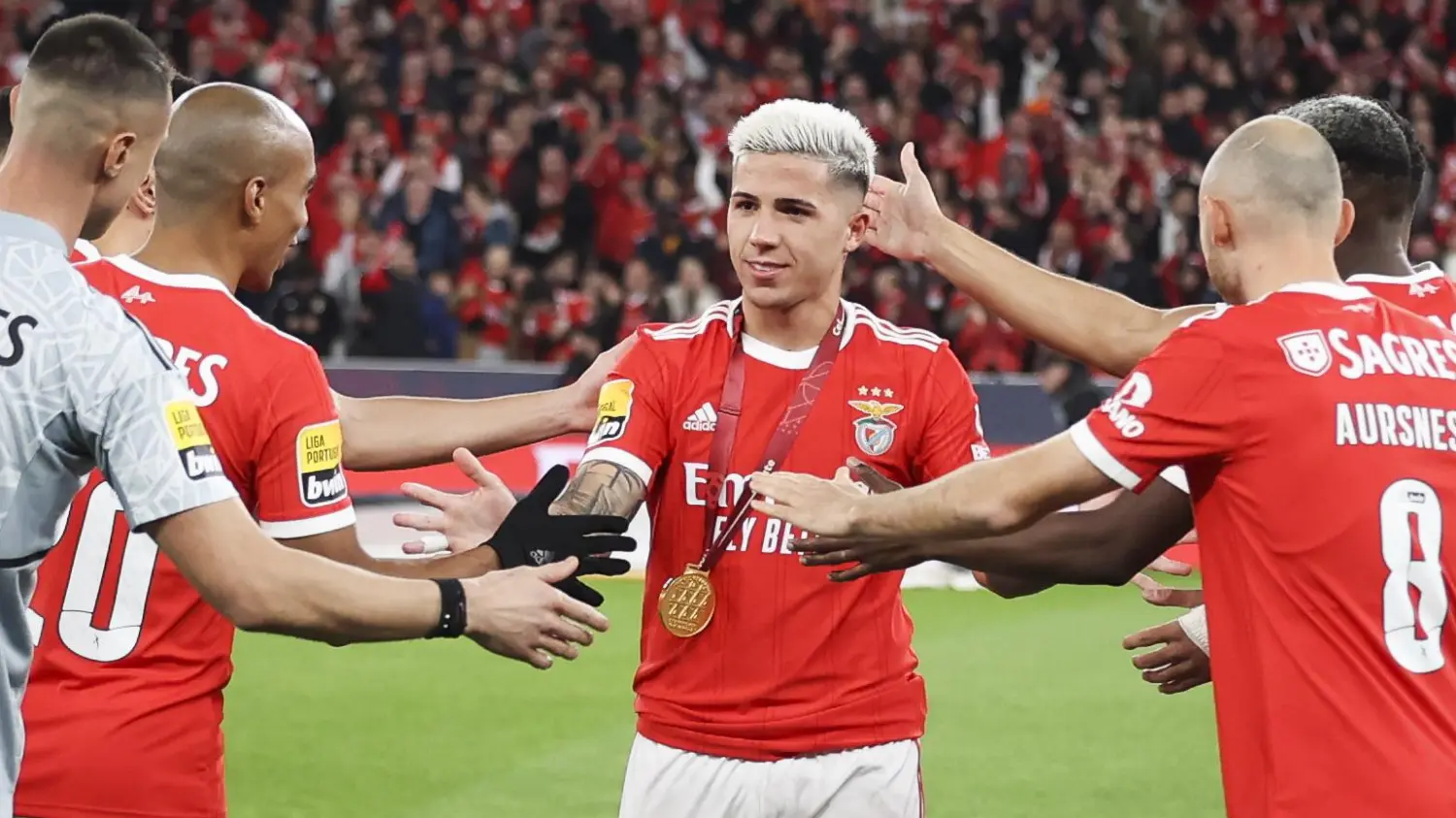Portugal isn’t just producing great players — it’s churning them out at an astonishing rate. From small academies to major European clubs, the country’s influence is impossible to ignore. But how did a nation of just over 10 million people become one of the most consistent talent pipelines in world football? In this article, we’ll explain the roots of Portugal football youth success, the structure behind it, and why top talent keeps emerging. Whether you’re a fan or a coach, this is worth your read.
The Historical Backbone of Portuguese Football
Portuguese football has long punched above its weight. The 1960s saw Eusebio take the world by storm. Decades later, Luis Figo inspired a new generation, while Cristiano Ronaldo redefined excellence. But this didn’t happen by chance. Behind these stars was a culture of nurturing, resilience, and technical excellence that continues to thrive.
The foundation was laid when clubs began investing heavily in youth infrastructure. Sporting CP, Benfica, and FC Porto led the charge. Their vision? Develop at home instead of overpaying abroad. This shift planted the seeds for a system now producing global stars year after year.
In 2000, Portugal’s youth setup saw a significant transformation. It wasn’t just about individual brilliance anymore. There was a deliberate move towards a system: structured academies, better coaching licenses, and national alignment in playing style. This foresight began to pay off quickly.
Role of Top Clubs: The Training Grounds for the Elite
The engine room of Portugal football youth success lies in its elite clubs. Three names dominate this space:
Sporting CP Academy – The Talent Machine
Often called the “Academy of Champions,” Sporting CP’s academy in Alcochete is a national treasure. It produced Ronaldo, Nani, Quaresma, and more. What makes it different?
- Focus on fundamentals: Technical skill takes priority over physicality in early stages.
- Holistic approach: Nutrition, education, and psychological support are all integral.
- Match exposure: Young players frequently play against older, tougher opponents to build resilience.
Benfica Campus – The Modern Benchmark
Benfica’s state-of-the-art training ground in Seixal is among Europe’s best. In the past decade, it has produced João Félix, Bernardo Silva, Renato Sanches, and Gonçalo Ramos. Their model emphasizes:
- Data-driven coaching: Performance analytics guide player development.
- Tactical adaptability: Youth teams mirror the first team’s playing style.
- International scouting: Benfica combines local roots with global reach.
FC Porto – The Grit and Growth Culture
Known for developing mentally tough players, FC Porto focuses on building winners. Many of their talents like Diogo Dalot and Vitinha were developed with an emphasis on:
- Tactical intelligence over flair
- Versatility, allowing players to operate in multiple roles
- Competitive edge, instilled through a winning mentality from youth level
National Programs and Coaching Standards: A Unified Vision
Beyond the clubs, the Portuguese Football Federation (FPF) plays a central role in shaping youth development. Unlike many countries where chaos and inconsistency plague grassroots systems, Portugal follows a coordinated national blueprint. This structure ensures that youth coaching across the country is aligned with long-term player development goals.
Coaching Licensing and Education
Portugal boasts one of the most respected coaching education programs in Europe. UEFA Pro licenses are common even at the grassroots level. Coaches aren’t just trained to win matches — they’re taught to mold individuals with vision, decision-making, and emotional intelligence.
The FPF also launched several grassroots campaigns over the past 15 years to support early-stage development. “Crescer com o Futebol” (Growing with Football) and “Portugal Football School” are key initiatives where learning is continuous — not just for players but coaches and support staff as well.
Emphasis on Intelligence Over Strength
Unlike countries that prioritize physical development early, Portugal takes a different route. The focus is on:
- Ball mastery from a young age
- Small-sided games to enhance decision-making
- Creative freedom within structured systems
This philosophical shift, implemented nationally, has helped Portugal produce thinking footballers — the kind of players modern clubs are desperate to sign.
Socio-Cultural Factors: Why Football Is in Their Blood
Football in Portugal isn’t a hobby — it’s a way of life. From the narrow streets of Lisbon to the beaches of the Algarve, kids grow up with a ball at their feet. But what pushes them from dreamers to professionals?
Early Exposure and Competitive Culture
Children are introduced to organized football as early as age 5. Local clubs are embedded in communities, providing pathways for progression. By age 10, most talented kids are already being scouted.
The competitive spirit is also deeply ingrained. Street football remains common, and it teaches creativity, grit, and quick thinking. There’s an unwritten rule — if you want to stand out, you better do something special with the ball.
Family and Community Support
Parents and communities rally around budding footballers. Weekend games become neighborhood events. Support systems are strong, and emotional investment is high. In many regions, football is the most viable way to break socio-economic barriers, creating extra drive among young players.
Financial Model: Developing to Sell — and Reinvest
Portugal’s football economy doesn’t match giants like England or Germany. But what it lacks in size, it makes up for in efficiency. The business model of developing players to sell at a premium is not just smart — it’s necessary.
Transfer Strategy
Portuguese clubs have perfected the art of transfer profits. In the last decade, Benfica and Porto alone have generated over €1 billion in player sales. Examples include:
- João Félix to Atlético Madrid: €126 million
- Rúben Dias to Manchester City: €68 million
- Éder Militão to Real Madrid: €50 million
These revenues are then poured back into academy facilities, scouting networks, and coaching education.
Financial Incentive for Youth Development
Unlike richer leagues, where buying ready-made talent is common, Portuguese clubs rely on homegrown stars. It’s not a backup plan — it’s the core business model. This creates an environment where youth players get real chances, not just bench roles.
Success Stories: Proof the System Works
Nothing validates a development model like results. Portugal’s list of homegrown stars isn’t just long — it’s filled with players who’ve conquered the highest levels of football. These players are products of an ecosystem built for success.
Cristiano Ronaldo: The Gold Standard
Ronaldo’s journey from Madeira to global icon isn’t just a story — it’s a blueprint. He joined Sporting CP’s academy at 12, and within a few years, was a first-team player. His development was intense, structured, and focused. Everything from his diet to mental strength was shaped at an early age. His rise is proof of what happens when raw talent meets a nurturing environment.
Bernardo Silva and João Félix: The New Era
Bernardo Silva emerged from Benfica’s youth system, known for his intelligence and technique. João Félix, another Benfica graduate, became one of the most expensive teenagers ever. Both are technical, smart, and adaptable — traits Portugal’s system consistently produces.
Dias, Cancelo, Vitinha, and More
It’s not just attackers. Portugal is now producing complete defenders, full-backs, and midfield maestros. Rúben Dias, João Cancelo, and Vitinha are just a few names showing the depth and variety in Portuguese development pipelines.
International Tournaments: Consistency in Youth Levels
Portugal isn’t only making headlines at club level. Their national youth teams regularly dominate European and world tournaments, reflecting the success of their development structure.
UEFA Youth Competitions
Portugal’s U17 and U19 teams consistently reach semi-finals and finals in European championships. Their U17 team won the Euro in 2016, and the U19s triumphed in 2018. These are no flukes. These wins come from systems where tactical understanding and composure under pressure are built from day one.
U21 Success and Olympic Presence
Portugal’s U21 side has reached the final of the UEFA U21 Championship multiple times in recent years. Although they haven’t yet converted that into a win, their performances showcase a pool of players who are nearly first-team ready for both club and country.
The Future: Why Portugal Will Keep Producing Stars
If you think Portugal’s current generation is strong, the future might be even brighter. The model is being refined, investment is growing, and more clubs — even outside the Big Three — are focusing on youth.
Rise of Smaller Clubs
Braga, Vitória de Guimarães, and Famalicão are developing stars of their own. These clubs now see youth success as their path to financial and sporting relevance. The monopoly of Sporting, Benfica, and Porto is being challenged — and that’s great for the system overall.
Tech-Driven Training and Global Partnerships
Modern academies are integrating tech like never before. AI-driven performance tracking, VR simulations, and global partnerships with clubs abroad are pushing Portuguese development even further.
Stronger Coaching Pipeline
The next wave of coaches is even better prepared. Many are fluent in multiple tactical systems and open to global methods, making them ideal leaders for the next generation.
Pros and Cons of Portugal’s Youth Football System
While Portugal’s football development model is widely praised, no system is without flaws. Here’s a realistic view of its strengths and challenges:
Pros
- Consistent Talent Output: Produces world-class players in all positions, not just attackers.
- Structured Development: Clear pathways from grassroots to pro level, supported by national coordination.
- Smart Business Model: Youth academies are sustainable due to strong transfer strategies.
- Cultural Passion: Football is part of daily life, motivating kids early.
- Strong Coaching Standards: Coaches are well-trained, licensed, and focused on development, not just results.
Cons
- Over-Reliance on Transfers: Clubs depend heavily on selling talent, which affects long-term team stability.
- Pressure on Young Players: High expectations can lead to burnout or rushed moves abroad.
- Limited Domestic Opportunities: Top-tier clubs sometimes still favor experienced foreign players over giving youth a full season.
- Economic Limitations: Smaller clubs may lack resources to match training quality at bigger academies.
FAQs
Who is the most successful Portuguese footballer from a youth academy?
Cristiano Ronaldo, a product of Sporting CP, is the most successful Portuguese footballer. He’s won multiple Ballon d’Or awards and countless titles across Europe.
What makes Portugal football youth success different from other countries?
Portugal focuses on intelligence, technique, and emotional resilience over early physical dominance. The system is aligned nationwide, from grassroots to professional levels.
Where do most Portuguese players start their careers?
Most start at small community clubs and are scouted by big academies like Sporting CP, Benfica, or Porto by age 10–13.
Why does Portugal sell so many players?
It’s part of a sustainable model. Selling players funds club operations and youth programs, keeping the system alive and thriving.
How are Portuguese youth teams doing internationally?
Portugal’s youth teams consistently reach later stages in European and world tournaments, proving the success of their development model.
Will Portugal continue to produce top footballers?
Yes. Investment, innovation, and a growing number of youth-focused clubs suggest Portugal’s talent pipeline is not slowing down anytime soon.
Conclusion
Portugal football youth success is no accident. It’s a product of structured academies, elite coaching, cultural passion, and a financial model that rewards development. The country has managed to turn its love for the game into a machine that creates stars, earns millions, and inspires generations. As long as they keep building, training, and believing, Portugal will remain a football powerhouse.
If this article gave you new insight, drop a comment, share it with your football-loving friends, or hit the subscribe button for more stories on global football talent. Let’s keep the conversation going.










